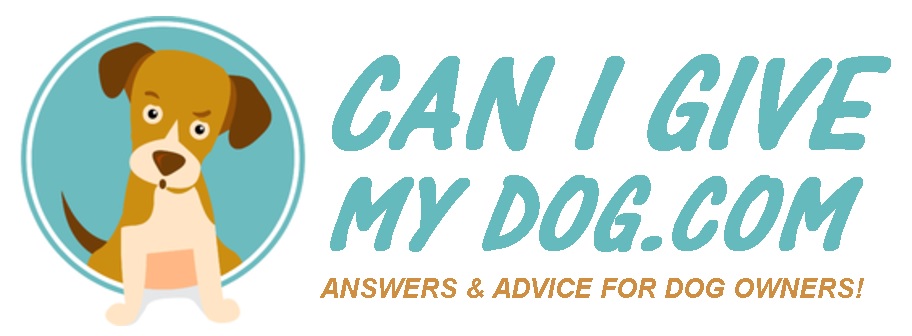It’s inevitable that your dog will want to bite into a delicious apple.
Are you wondering if sharing this fruit is a good idea?
 Here’s our answer:
Here’s our answer:
A few sliced up apple wedges should be no problem for your dog. Just a little preparation is required.
While the ASPCA is concerned about trace amounts of cyanide, this is not a factor when the following steps are taken:
- Cut up an apple into easily digestible slices
- Remove the seeds, stem and core
- Provide appropriate portions (more on this later)
To be clear: The edible flesh is not at all poisonous!
Your Dog Can Have An Apple
Done right, there is no harm in offering this fabulous fruit.
With that being said, it is best to limit apples to a special treat only.
While nutritious, and low in calories, a smart approach to apples is to use them as a reward for good behavior!
Must Do Pet Preparation
It’s important to be aware of some entirely avoidable risks.
Perhaps the biggest concern is that your dog could choke on an apple.
It cannot be stressed enough:

Chop the apple up (so digestion goes smoothly). Also, be sure to remove the core because it can get lodged in the throat.
A scary incident could occur if this part is swallowed whole.
Removal of the stem, leaves and seeds is equally important (due to a tiny presence of Cyanogenic glycosides).
Then, just limit your dog’s apple consumption and sharing is caring!
What About Apple Skin?
Many owners have asked about the outer peel.
There is no reason why dogs must be prevented from eating the skin of a fresh apple.
Of course, as you would for yourself, wash any fruit before serving it.
Different Doggie Digestion
At this point, let’s take a step back for a moment…
Consider that dogs aren’t accustomed to eating fruits. Nor do they require this type of food.
Why am I telling you this?
Well, there’s a good chance Fido won’t fully absorb an apple’s vitamins and minerals.
Your dog has a relatively short digestive tract, but that does not mean you can’t share.
Portions & Other Pitfalls
The goal is to minimize a possibility of diarrhea or stomach upset.
How best to do that?
Quite simply, don’t feed too much apple. Avoid getting carried away!
And definitely not the juice, or one in a potentially rotten state.
Of course, every animal’s tolerance for specific foods is a bit different. Sensitivity varies from pet to pet.
Monitor your dog afterwards (especially the first time feeding an apple).
They Say, An Apple a Day…
As the saying goes, an apple a day keeps the doctor away.
But this doesn’t apply to dogs!
There is no need to supplement in this way, though sharing is totally fine.
The Bottom Line
Dogs can be fed apples.
There is no toxicity factor when simple prep work is done.
Remove the core and stem as well as leaves and seeds. Then, set aside a modest amount.
Be reasonable.
Remember: Apples don’t have what your dog actually requires to thrive. Go easy!

My Lab/Boxer mix loves his morning apple snack. He gets about 1/2 of a very small Fuji apple each morning. He’s very big (110 pounds) so I don’t have to cut them into tiny pieces. No stems or seeds of course.
I don’t give him apple for the sake of nutrition, rather as a healthier and more weight-friendly snack. He gets a quality grain-free dry food for his meals.
I do have to watch his weight. He tends to put on pounds if he snacks too much. A bit of pumpkin puree, carrots and apple each day (spread out) keeps his weight in check and satisfies his snack tooth.
Both my boys enjoy this treat once in a while. One of them isn’t able to chew the apple’s skin so I peel it for him. Will he get the same nutritional value?
I have a 12 year old Basset Hound who is an epileptic and is taking Phenobarbital. Bella is 65 pounds which is big for her breed. She’s always hungry and has put on weight. So now she is on satiety dog food and has lost 7 pounds.
The vet suggested I could give her apple, carrots but no seeds in between feedings to calm her hunger. I was sort of surprised when you said no fruit. It’s been a struggle but the fruits do help. Bella is a healthy dog other than her epilepsy. Who do I believe?
My dog is also needs to lose weight. I give her apple slices between feeds as well. She loves them and it helps her hunger. Even after reading this article I will continue to do so.
Occasionally I give my Australian Kelpie and Border Collie apple slices. Both of them really enjoy it with no side effects. But I also have a German Shepherd with pancreatic deficiency syndrome and whenever she gets hold of only a small piece of apple, she gets very sick with vomiting and diarrhea and even some fever.
I live in apple country, eastern Washington State. Dogs eat apples. Coyotes eat apples. Dogs are omnivores. We have English Mastiffs, as other Mastiff owners can attest, they have delicate constitutions. Our dogs have dehydrated apples as treats. We also tear up some of the dehydrated apple and put it on their bland, high quality, boring kibble. It works well. They are very regular and well formed.
Dogs are carnivores and a Prey-Model Raw (PMR) diet is the most appropriate for such animals. Other than meat, the diet doesn’t normally include fruits and vegetables. Of course, there’s no harm in adding fruit like apples to treat certain diseases. The BARF diet, on the other hand, definitely includes fruits and vegetables plus meat. The founder of the diet, Dr. Ian Billinghurst, believes dogs are omnivores.